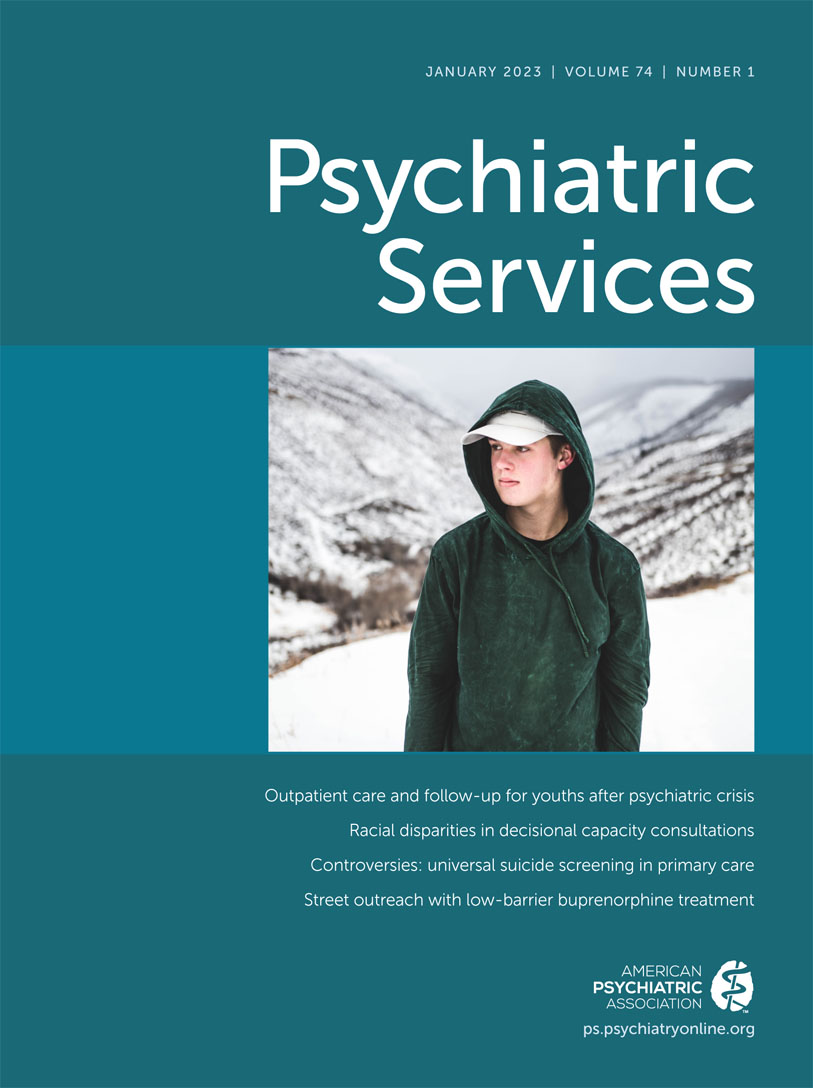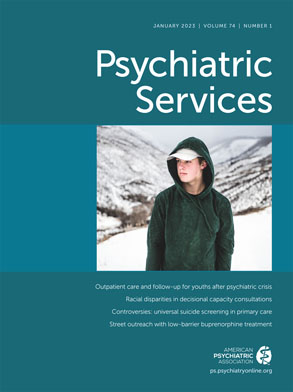This Editor’s Choice collection and others are available online in the Editor’s Choice section of ps.psychiatryonline.org.
Decision science is a collection of quantitative techniques for understanding how people make choices and how they can make better ones. While most fields of research focus on producing new knowledge, decision science is concerned with making optimal choices based on the information at hand. Within health decision science, cost-effectiveness analysis can guide resource allocation decisions at the policy level, whereas shared decision making aims to align a patient’s choices with the patient’s preferences. Health economics is a related field that studies how choices made by policy makers, physicians, or patients can affect health care outcomes and costs. Together, these fields are used to inform mental health policy and drive meaningful change in mental health service access, delivery, and outcomes.
The articles included in this collection demonstrate a variety of approaches within health decision science and health economics. Articles in the first section examine effects of different policy changes on access to mental health services. The second section includes articles that estimate the economic burden of certain disorders (e.g., cost-of-illness studies). Articles in the third section demonstrate cost-effectiveness analysis through simulation modeling of mental disorders. Finally, the fourth section offers examples of shared decision-making research with an emphasis on patient preferences. All of these approaches can be useful tools in the provision and evaluation of mental health care.
Evaluating the Effects of Mental Health Policy Interventions
Effects of High-Deductible Health Plans on Enrollees With Mental Health Conditions With and Without Substance Use Disorders
Schilling CJ, Eisenberg MD, Kennedy-Hendricks A, et al.
Psychiatr Serv 2022; 73:518–525
The Effects of Federal Parity on Mental Health Services Use and Spending: Evidence From the Medical Expenditure Panel Survey
Drake C, Busch SH, Golberstein E
Psychiatr Serv 2019; 70:287–293
Effects of ACA Expansion of Dependent Coverage on Hospital-Based Care of Young Adults With Early Psychosis
Busch SH, Golberstein E, Goldman HH, et al.
Psychiatr Serv 2019; 70:1027–1033
Cost-Of-Illness Studies in Mental Health Care
Incremental Health Care Burden of Treatment-Resistant Depression Among Commercial, Medicaid, and Medicare Payers
Shrestha A, Roach M, Joshi K, et al.
Psychiatr Serv 2020; 71:593–601
Spending on Young Children with Autism Spectrum Disorder in Employer-Sponsored Plans, 2011–2017
Grosse SD, Ji X, Nichols P, et al.
Psychiatr Serv 2021; 72:16–22
Health Care Costs of Individuals With Chronic Psychotic Disorders Who Experience Incarceration in Ontario
de Oliveira C, Kouyoumdjian FG, Iwajomo T, et al.
Psychiatr Serv 2022; 73:760–767
Cost-Effectiveness Analyses to Guide Resource Allocation Decisions
Cost-Effectiveness of Esketamine Nasal Spray for Patients With Treatment-Resistant Depression in the United States
Ross EL, Soeteman DI
Psychiatr Serv 2020; 71:988–997
Cost-Effectiveness of Early Intervention in Psychosis: A Modeling Study
Sediqzadah S, Portnoy A, Kim JK, et al.
Psychiatr Serv 2022; 73:970–977
Modeling the Cost-Effectiveness of Interventions to Reduce Suicide Risk Among Hospital Emergency Department Patients
Denchev P, Pearson JL, Allen MH, et al.
Psychiatr Serv 2018; 69:23–31
Shared Decision Making and Patient-Centered Mental Health Care
Satisfaction and Needs in Serious Mental Illness and Autism Spectrum Disorder: The REHABase Psychosocial Rehabilitation Project
Franck N, Bon L, Dekerle M, et al.
Psychiatr Serv 2019; 70:316–323
Use of a Web-Based Shared Decision-Making Program: Impact on Ongoing Treatment Engagement and Antipsychotic Adherence
Finnerty MT, Layman DM, Chen Q, et al.
Psychiatr Serv 2018; 69:1215–1221

